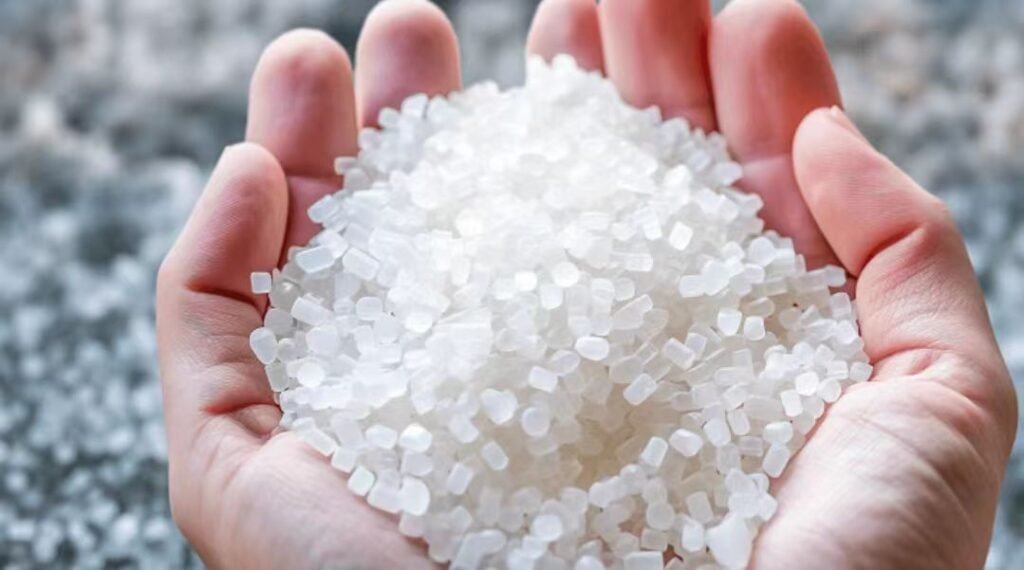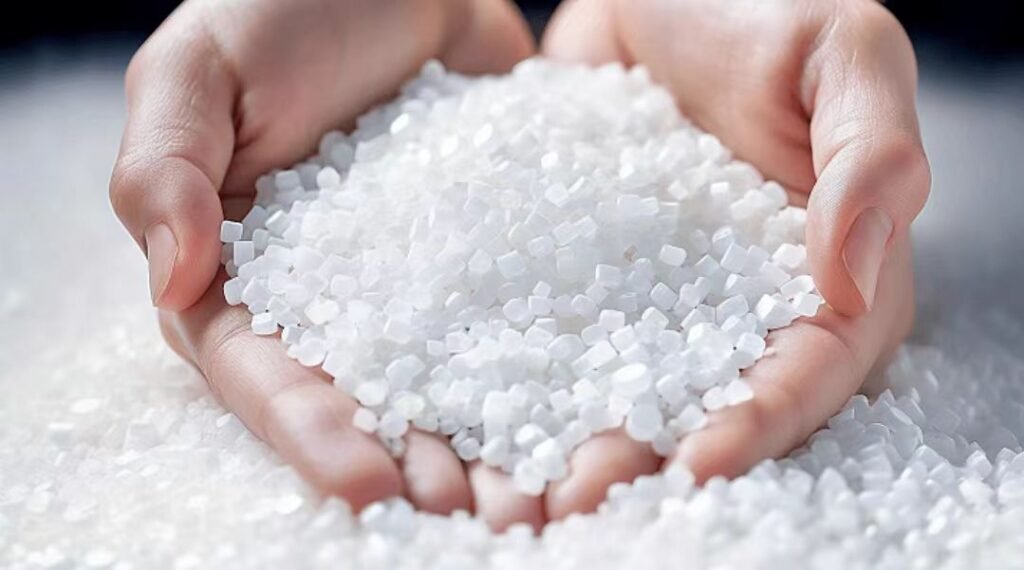In the production workshop of Wenzhou Wobo Stationery Co., Ltd., a batch of special rulers are being packed and shipped to France. The raw materials of these transparent and smooth student rulers are not from oil, but from discarded plastic bottles collected from the fishing port.
“The products have passed the international recycling standard GRS certification, and can enjoy tariff reductions when exported to Europe and the United States. The cost is lower, and the orders are visibly growing.” Zhao Wenya, the general manager of the company, pointed to the production line and said. Through the original process, they successfully solved the technical problem of whitening of recycled plastics, making the products indistinguishable from ordinary rulers, but more durable.

This is just a wave in the wave of innovation in China’s plastic granule industry. With the outbreak of global environmental protection needs, the originally inconspicuous plastic granules are quietly reshaping the international industrial chain through cross-border e-commerce.
At the Xiachang Fishing Port Wharf in Pingyang County, Wenzhou, Zhejiang, the staff of the “Blue Sea Station” are busy sorting out the plastic bottles and fishing nets sent by fishermen. These wastes that once floated on the sea are about to start a gorgeous transformation.
Each plastic bottle is strictly classified, cleaned, and a traceable QR code is generated. Through a real-time monitoring collection and transportation system, these marine wastes are converted into pure PET particles, and eventually become environmentally friendly stationery in the hands of European students.
The same cross-border journey is also taking place in the north. A company in Harbin converts 2,000 acres of farmland straw into biosynthetic resin particles, and 41 tons of mung bean-sized golden particles are being loaded and shipped to Seoul. These particles will be processed into environmentally friendly plastic bags, tableware and agricultural films to replace traditional polyethylene products.
“The straw content of the product is 30%-70%, and the degradation time is controllable from 60 days to two years. Some products will not even degrade for life.” Wu Ming, general manager of the company, introduced. The tableware produced by these particles is not only environmentally friendly, but also has the advantages of high toughness, anti-fall, high temperature resistance, and no toxin volatilization.
While environmentally friendly particles are shining in the field of daily necessities, another type of high-performance plastic particles is quietly changing the high-end manufacturing industry. PA6T high-temperature nylon particles authorized by DuPont in the United States have achieved performance breakthroughs through a unique semi-aromatic structure: the melting point is as high as 310°C, and the continuous use temperature can reach 230°C.
In the engine compartment of a car, the turbocharger intake pipe made of PA6T particles can withstand temperatures above 130°C; in electronics factories, it is used as the shell material of SMT connectors and can easily cope with 260°C lead-free welding processes; it can even be found in seals of oil drilling equipment and medical sterilization equipment.

PBT plastic particles from Lanxess in Germany show another side. The Pocan® XHR series not only has high heat resistance and strength, but its hydrolysis resistance makes it an ideal choice for components such as power distribution boxes and connectors in the engine compartment of a car, and it maintains stable performance in hot and humid environments.
In Wuhu, Anhui, recycled HDPE particles are writing the legend of the circular economy. These particles recycled from laundry detergent bottles and shampoo bottles are transformed into practical products such as pipes, tool boxes, and flower pots through a 150-mesh filter.
Black HDPE recycled materials are very useful in the construction industry due to their excellent weather resistance and economy. With its excellent weather resistance and economy, building materials such as drainage systems and floor drains have a 30% increase in corrosion resistance. Components such as car bumpers and fuel tanks have achieved a double improvement in light weight and cost advantages.
Environmental protection and economy are not contradictory,” an industry expert pointed out. “The cost of recycled materials is usually 15%-30% lower than that of virgin materials. Coupled with the tariff preferences of European and American countries for sustainable materials, the profit margin of cross-border e-commerce is considerable.
With the escalation of the global plastic ban, biodegradable plastic particles have become a star category of cross-border e-commerce. Hefei Hengxin Life Technology has made a breakthrough in improving the adhesion and fluidity of materials through PLA particle modification technology, increasing the production efficiency of laminating by 40%.
These innovative particles are made into products such as knives, forks, spoons, straws, and lunch boxes, and are directly supplied to North American coffee chains and European supermarkets. The company’s Thai factory is fully accepting orders from the US market, and its production capacity continues to climb.
At the same time, Harbin’s straw bioresin particles have developed higher value-added applications-3D printing materials. The company plans to invest 860 million yuan in the second phase of the industrial park, with the goal of producing 100,000 tons of bioresin particles and degradable agricultural films annually.
The global plastic particle market is undergoing a silent revolution. In European supermarkets, environmentally friendly rulers made in China are placed in the most eye-catching position even though they are 30% more expensive; in Korean factories, straw particles from Harbin are replacing traditional polyethylene; in the supply chain of American catering giants, the share of PLA tableware produced in Thailand continues to rise.
“Environmental protection is not only a pass, but also a magic weapon for winning,” Zhao Wenya revealed the mystery, “sustainable development is the most long-term business.”
When cross-border e-commerce meets green materials, plastic particles, a traditional product, is setting off a new round of value in the global market in the name of innovation.
